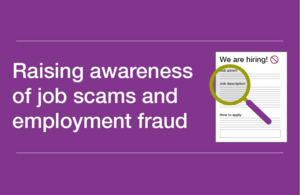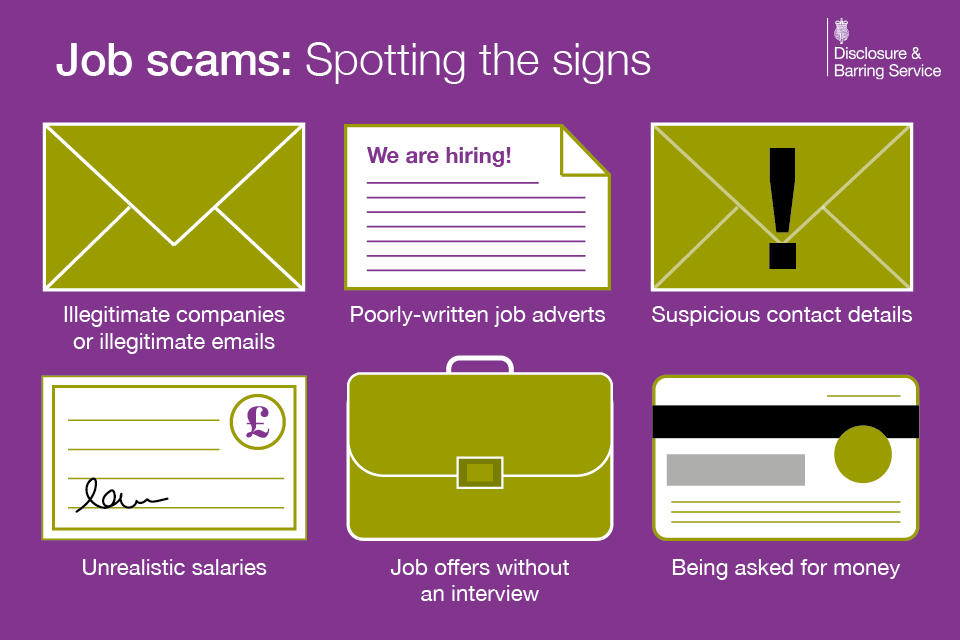
Yesterday, the DBS published a press release regarding a campaign to raise awareness about employment fraud. Working in collaboration with JobsAware, Disclosure Scotland and AccessNI, they hope to help people avoid scams that are becoming worryingly pervasive in the pandemic job market. For example, the press release states:
During the pandemic, almost three in four job seekers (74%) applied for jobs that were not genuine.
JobsAware is a non-profit that works together with the government to raise awareness of bad working conditions or outright job scams. They also provide support to job searchers dealing with malpractice and fraud.
With the way we work and look for work continuing to evolve, job scams are becoming increasingly common and sophisticated. We know how damaging it can be to fall victim to such scams now more than ever. That is why it’s important to educate and arm job seekers with the understanding and support they need to recognise and report suspected fraud.
Keith Rosser, Chair of JobsAware (previously SAFERjobs)
The DBS produced a useful infographic, showing the warning signs to take notice of when applying for jobs:

Employment Fraud Case Studies
The DBS has also produced two case studies, the full details of which are available here.
First case study:
Amanda Paremain, 55, a job seeker from Birmingham, applied to a fake job advert on a popular jobs board website claiming to be from a holiday company. Despite not being asked to undertake an interview, she was offered the role, and then directed to a fake website to make a payment for a supposed DBS check. Before making the payment, Amanda made online checks, and found that others had been scammed by the same outfit.
Disclosure and Barring Service Press Release
Case study two:
Sami Ayubi, a 44-year old carer from Exeter, was offered a customer service role with a business that claimed to be a social network for footballers. After accepting the position, he was pressured to carry out an “expedited DBS check”. He was directed to a fake website for to make a “specially reduced” £15.99 payment and realised it was fraudulent. Sami has since discovered that many others have unfortunately fallen for the same scam.
The DBS and JobsAware are available to help people if they believe a scammer is targeting to them. You can report the company through their portal. The DBS advise that if you have lost money due to employment fraud, you should contact the police.
